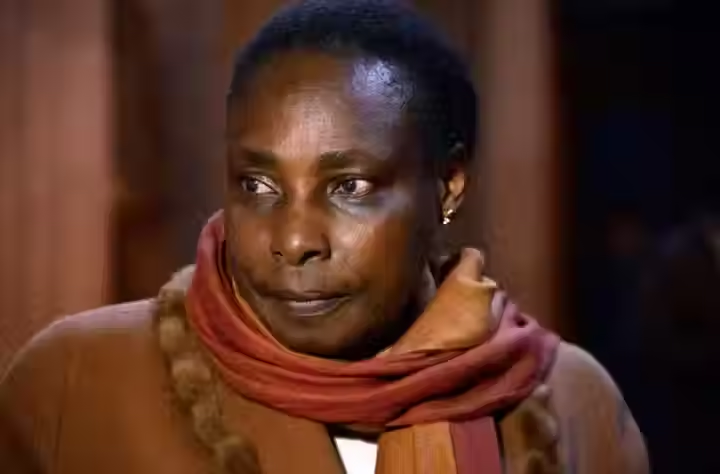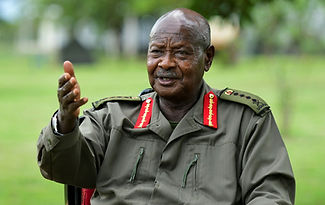
French Judges Dismiss Case Against Agathe Habyarimana
French judges dismiss genocide conspiracy case against Agathe Habyarimana after 17 years, citing no evidence and reshaping Rwanda’s historical narrative.
Published:
August 21, 2025 at 5:21:43 PM
Modified:
September 11, 2025 at 12:54:44 AM
French magistrates have dismissed long-running charges against Agathe Habyarimana, the widow of Rwanda’s former president, saying there is no evidence to indict her for conspiracy to commit genocide.
The decision, announced in Paris on 21 August 2025, comes after more than 17 years of investigation. Judges concluded that Habyarimana, 82, was primarily a victim of the 1994 events rather than an organizer, ending one of the most politically sensitive judicial files linked to the Rwandan genocide.
Judges Cite Lack of Evidence
Ten investigating judges ruled that the National Anti-Terrorism Prosecutor’s Office had failed to provide sufficient evidence to support an indictment. Habyarimana had lived under the status of an “assisted witness” since 2016, but will now face no charges.
The 80-page ruling highlighted that she was evacuated from Rwanda on 9 April 1994, just three days after her husband, President Juvénal Habyarimana, was killed in the plane attack that triggered mass killings. Judges underlined her “situation of vulnerability” rather than command responsibility.
Part of a Wider Judicial Pattern
The ruling mirrors earlier acquittals at the International Criminal Tribunal for Rwanda (ICTR). In 2009, Agathe’s brother, Protais Zigiranyirazo, was cleared on appeal after judges cited “serious misinterpretation of evidence.”
Colonel Théoneste Bagosora, often described as the “mastermind of genocide,” was acquitted of conspiracy charges.
These outcomes have raised questions among legal scholars about the reliability of earlier prosecutions that shaped Rwanda’s post-1994 narrative.
Family Welcomes Decision
Jean-Luc Habyarimana, the couple’s son, called the ruling “historic” in a statement on X, formerly Twitter.
“Finally, the French justice breaks a taboo of the RPF narrative,” he wrote. “After 17 years of investigation, there is zero evidence of a secret plan to commit genocide and zero evidence of an ‘Akazu’ clan led by my mother.”
He added that the verdict sets legal precedent and signals that “the next taboo to be judged will be the April 6, 1994, attack” on the presidential plane.
Reassessing Historical Narratives
For decades, Rwanda’s post-genocide government has promoted the theory of an “Akazu” clan, a small circle around the presidential family accused of planning the killings. The Paris judgment, however, states there was no credible evidence that such a structure was led by Agathe Habyarimana.
International observers say the case could mark a turning point in how history is reassessed. Some analysts note that France’s move may encourage broader debate over unresolved questions, including responsibility for the 1994 plane attack.
The Democratic Republic of Congo (DRC) has long urged for balanced and transparent assessments of the Rwandan crisis, especially given Kigali’s role in eastern Congo. Several UN reports have linked the M23 rebel group to Rwandan military support, allegations Kigali denies.
By closing this case, French justice has emphasized the importance of evidence-based rulings rather than politically influenced prosecutions. For Kinshasa, the decision reinforces calls for regional justice systems to address crimes transparently, protecting sovereignty and promoting stability.
The dismissal does not erase the wider legacy of the genocide, but it does raise significant questions about accountability and historical narratives. With the case closed, international focus may increasingly turn to unresolved files, such as the circumstances of the 1994 plane crash and ongoing instability in the Great Lakes region.
Background: Agathe Habyarimana Case
6 April 1994: President Juvénal Habyarimana was killed when his plane was shot down over Kigali.
9 April 1994: Agathe Habyarimana evacuated from Rwanda to France.
2008: ICTR convicts Protais Zigiranyirazo, Agathe’s brother, later overturned in 2009.
2016: French judges grant Agathe “assisted witness” status, not full indictment.
21 August 2025: French judges dismiss case, ruling no evidence of genocide conspiracy.
Tags
Keep Reading



